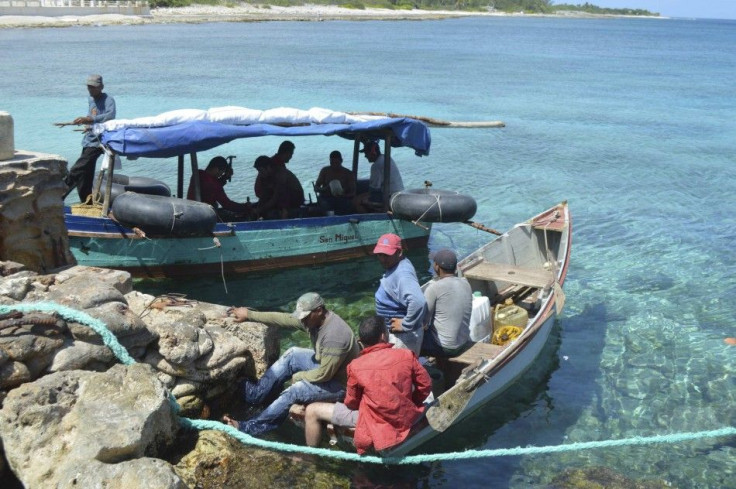Migrant Massacre at Sea: Five Arrested for the Deaths of 100

All they wanted was a chance at a better life. But migrants aboard a boat enroute to Europe didn't realize death could come knocking while they pursue their journey. On Wednesday, Italian police arrested at least five men for the alleged deaths of over 100 as panic ensued triggered by poisonous fumes in the overcrowded boat.
The five men who carried out the massacre were identified as two Moroccans, a Saudi Arabian, a Syrian and a Palestinian.
Survivors told police the chaos started when poisonous fumes began to fill the hull of the boat, making the migrants unable to breathe. Eventually, pandemonium broke loose as people tried to escape and find air.
"In a matter of minutes the heat became unbearable and the air was unbreathable due to the fumes from the motor," police said in a statement. "Desperation drove the prisoners to force open the door and climb onto deck where the tragedy occurred."
But survivors said the five men, wanting to keep the people below deck, began stabbing and assaulting the migrant passengers. Afterwards, they threw them overboard. They threatened the others not to react, otherwise they suffer the same fate.
Police authorities discovered 30 bodies, including a baby, apparently overcome by heat and engine fumes after being locked in the boat's hold.
Survivors told police in the Sicilian port of Messina a further 110 people had been thrown into the ocean by these five men as they crossed the waters from Tunisia.
Police also arrested three Tunisian traffickers who did nothing to stop the massacre.
It is believed the boat carried up to 600 migrants, the majority of whom were believed to be Syrians.
The growing lawlessness in Libya plus the calm summer weather has pushed up the figures of migrant landings in recent weeks, according to the AFP.
Just this month alone, at least 3,000 migrants were rescued in Italian territorial waters.
So far, around 80,000 migrants are believed to have arrived in Italy, from the previous 63,000 in 2011 at the height of the tensions triggered by the Arab Spring, the AFP said.





















